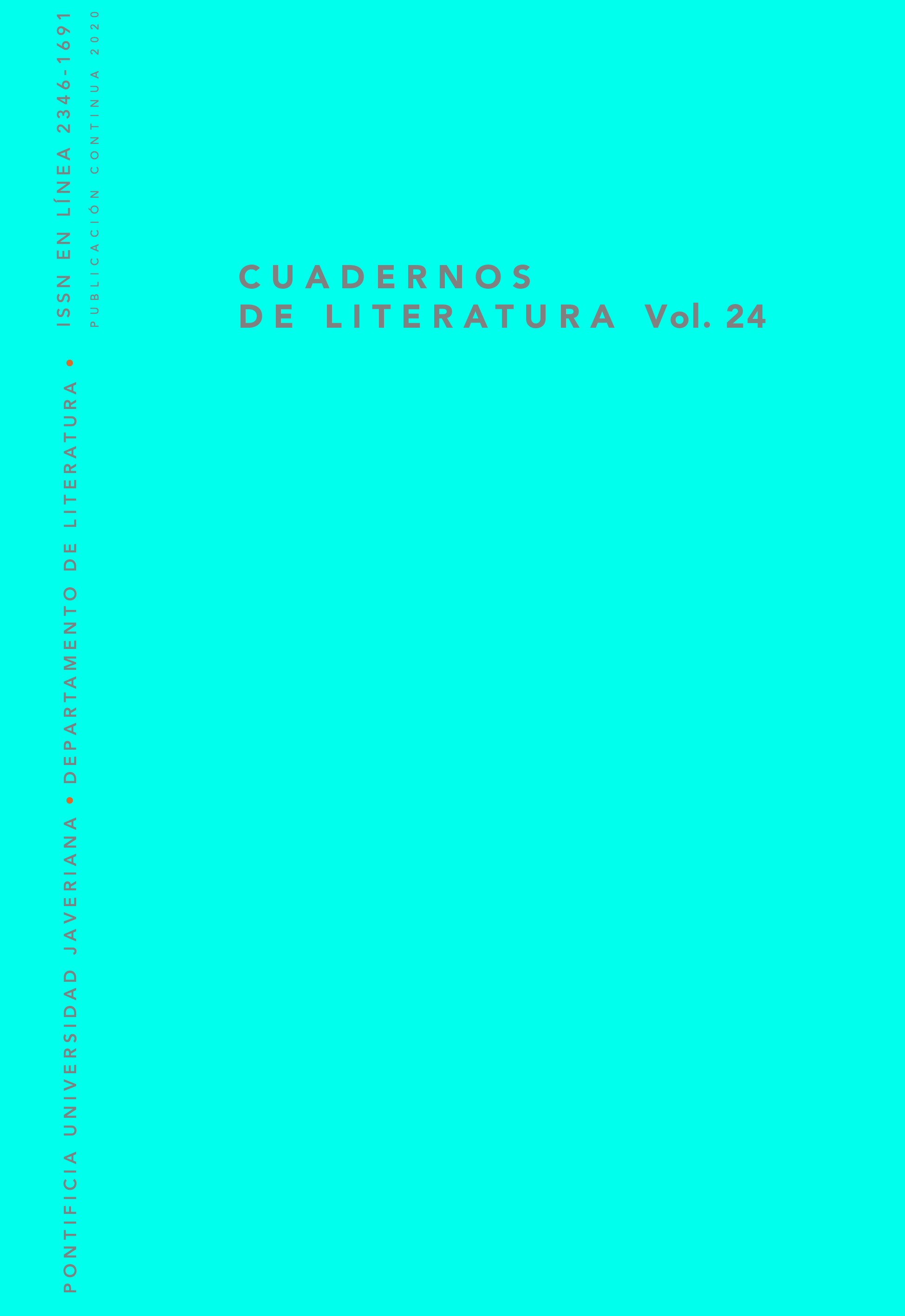Abstract
The question about the relationship between non-human agents and the novel as a genre denes current debates about literatura and its relationship with the Anthropocene (Ghosh and Nixon, for example.) This article argues that this relationship must be thought fundamentally around the notions of temporality and scale as critical tools to describe the ways in which the novel, putting in tension its own generic matrices, opens up to perspectives, actants, and processes irreducible to the norm of the human. The narrative of Colombian writer Juan Cárdenas offers formal models that allow us to analyze the relationship with the non-human in the contemporary novel. His focus on processes of natural extraction, and his work on silenced memories of Colombian and Latin American culture, allow him to explore narrative forms that harbor the non-human in their own temporalities. is investigation, at the same time, illuminates new terrain for a politics of literature that opens it to new imaginaries of the collective.
Andermann, Jens. Tierras en trance. Arte y naturaleza después del paisaje. Metales Pesados, 2018.
Anderson, Benedict. Imagined Communities. Verso, 1983.
Burgos, Gabriel. Narrativas inhumanas: capitalismo extractivo, delirios animistas y representación textual en José Eustasio
Rivera, José María Arguedas y Juan Cárdenas. 2019. State University of New York, Stonybrook, tesis doctoral.
Cárdenas, Juan. El diablo de las provincias. Periférica, 2017.
Cárdenas, Juan. Elástico de sombra. Sexto Piso, 2019.
Cárdenas, Juan. Los estratos. Periférica, 2013.
Cárdenas, Juan. “Pinturas viajeras y obscenidad del paisaje”, s. l., s. e., s. f.
Cardenas, Juan. Volver a comer del árbol de la ciencia. Tusquets, 2018.
Danowski, Débora y Eduardo Viveiros de Castro.Ha mundo por vir? Ensaio sobre os medos e os fins. Cultura e Barbárie,
Derrida, Jacques. Espectros de Marx. El estado de la deuda, el trabajo del duelo y la nueva internacional. Trotta, 1995.
Gago, Verónica. La potencia feminista. O el deseo de cambiarlo todo. Tinta Limón, 2018.
Ghosh, Amitav. e Great Derangement. Climate Change and the Unthinkable. University of Chicago Press, 2016.
Morton, Timothy. Hiperobjects. Philosophy and Ecology aer the End of the World. University of Minnesota Press, 2013.
Nancy, Jean Luc. La communauté désoeuvrée. Bourgois, 1990.
Nixon, Rob. Slow Violence and the Environmentalism of the Poor. Harvard University Press, 2011.
Povinelli, Elizabeth. Geontologies: A Requiem to Late Liberalism. Duke University Press, 2016.
Pratt, Mary Louise. “Coda: Concept and Chronotope”. Arts of Living on a Damaged Planet. Ghost and Monsters of the
Anthropocene, editado por Anna Tsing, Elaine Gan, Nils Bubandt y Heather Anne Swanson. E-book. University
of Minnesota Press, 2017.
Valentim, Marco Antonio. Extramundanidade e sobrenatureza. Ensaios de ontología infundamental. Cultura e Barbárie,

This work is licensed under a Creative Commons Attribution 4.0 International License.
Copyright (c) 2021 Gabriel Giorgi


